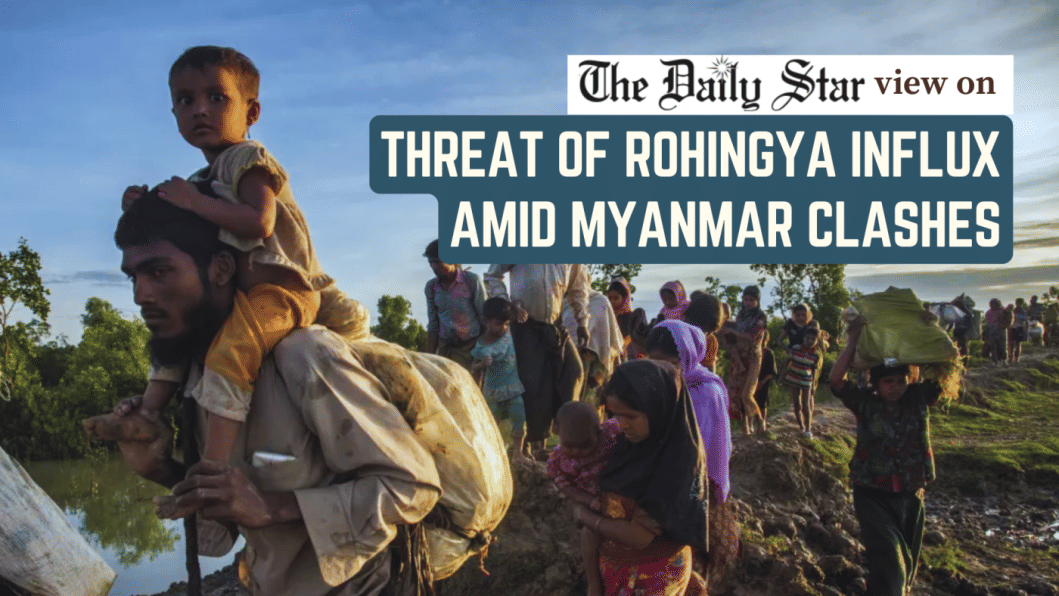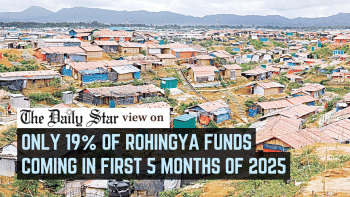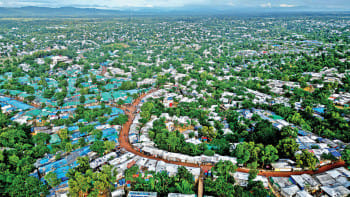Stop another fresh Rohingya influx

We are alarmed by the situation in Myanmar as fresh clashes erupted between the Arakan Army and Rohingya armed groups on the opposite side of the Whykong border from August 22 until the early hours of August 23. Reportedly, this was the fourth such clash over the past month, amid indications that Myanmar junta troops are preparing to retake parts of Rakhine. According to community leaders (Majhis) at the Teknaf Rohingya camps, who cited their relatives in Myanmar, between 400 and 700 Rohingyas have already fled their homes in Laldia, located across Teknaf's Jalia Island. Many have attempted to cross into Bangladesh but were unsuccessful due to heightened border patrols. In addition to the ongoing military clashes, the Arakan Army's extortion and harassment are also forcing many Rohingyas to flee to Bangladesh. If the fighting persists, there is a risk of another large-scale Rohingya influx.
For over eight years, Bangladesh has generously hosted 1.2 million Rohingya refugees despite the significant socio-economic and environmental strain this has placed on us. The crisis has deepened in recent months with approximately 150,000 more Rohingyas crossing into Bangladesh to escape intensifying conflict between the Arakan Army and the military junta. With repeated failed repatriation efforts, Bangladesh is already struggling to support the existing Rohingyas. If more arrive, it will be even harder for us to provide for them, especially with global aid shrinking significantly. The recent US funding cuts have already strained the conditions in the camps, limiting the Rohingyas' access to vital services like healthcare and education. Numerous projects, including those related to health, family planning, nutrition, and education, have been affected. According to a recent report by this daily, around 400,000 Rohingya children face an uncertain future as fund cuts force nearly 6,400 NGO-run schools in Cox's Bazar to shut down or cut back classes.
Humanitarian organisations have repeatedly warned that the situation will further deteriorate unless funds are urgently released. A recent RMMRU study revealed poor living standards, rising gender-based violence, including physical violence, sexual exploitation, coerced marriages, and deep psychological distress, as well as serious safety issues inside the camps. Given the current instability and conflict in Myanmar, if more Rohingyas arrive, the situation in Bangladesh will further deteriorate.
Against this backdrop, a three-day international seminar on the Rohingya crisis commenced yesterday, bringing together experts from both home and abroad, and this will hopefully generate concrete proposals for alternative funding mechanisms and a sustainable resolution to the crisis. These proposals could be presented at the upcoming High-Level Conference on the Rohingya Crisis, scheduled to take place in New York next month on the sidelines of the United Nations General Assembly. We would urge the international community not to shirk its responsibility in this regard. It must play its role in resolving this protracted crisis through meaningful engagement with Myanmar. Without an urgent and sustainable solution, the Rohingya crisis risks escalating into a serious threat to regional stability.


 For all latest news, follow The Daily Star's Google News channel.
For all latest news, follow The Daily Star's Google News channel. 









Comments